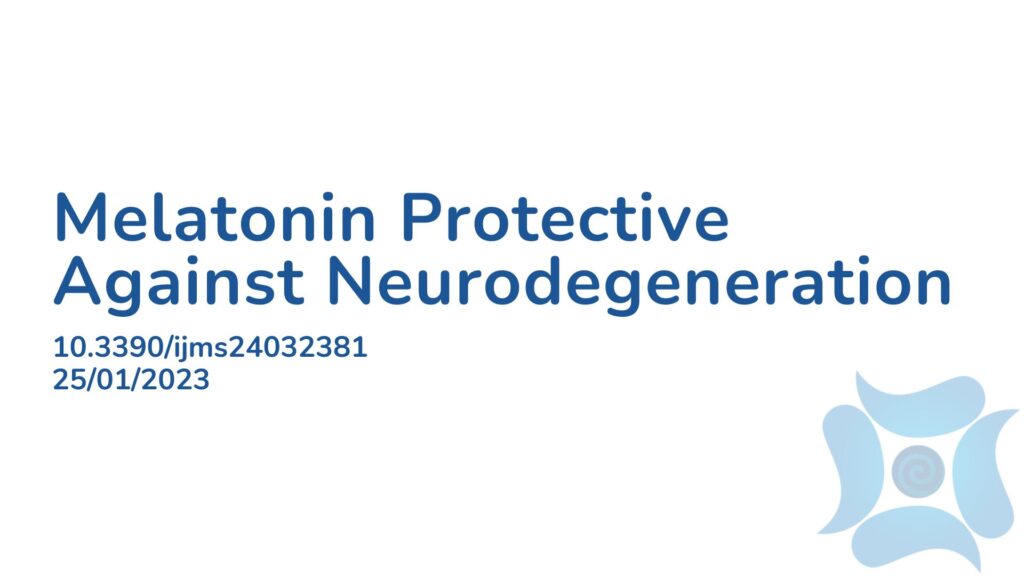Summary:
The risk of developing a degenerative disease such as cancer, Parkinson’s Disease (PD) or Alzheimer’s Disease (AD) increases as the human population ages. Stress to the endoplasmic reticulum, which is a large structure within a cell that is responsible for calcium storage, protein synthesis and lipid metabolism, has been hypothesised as a contributing factor to degenerative diseases such as PD and AD. This paper looked at whether melatonin, an antioxidant hormone involved in the circadian rhythm, immune system and has anti-tumor effects, can play a role in endoplasmic reticulum stress. The results showed that there are particular molecules that are targeted by melatonin during endoplasmic reticulum stress and that melatonin plays a critical role in protecting the affected neurons during endoplasmic reticulum stress.
Abstract:
As people age, their risks of developing degenerative diseases such as cancer, diabetes, Parkinson’s Disease (PD), Alzheimer’s Disease (AD), rheumatoid arthritis, and osteoporosis are generally increasing. Millions of people worldwide suffer from these diseases as they age. In most countries, neurodegenerative diseases are generally recognized as the number one cause afflicting the elderly. Endoplasmic reticulum (ER) stress has been suggested to be associated with some human neurological diseases, such as PD and AD. Melatonin, a neuroendocrine hormone mainly synthesized in the pineal gland, is involved in pleiotropically biological functions, including the control of the circadian rhythm, immune enhancement, and antioxidant, anti-aging, and anti-tumor effects. Although there are many papers on the prevention or suppression of diseases by melatonin, there are very few papers about the effects of melatonin on ER stress in neurons and neurodegenerative diseases. This paper aims to summarize and present the effects of melatonin reported so far, focusing on its effects on neurons and neurodegenerative diseases related to ER stress. Studies have shown that the primary target molecule of ER stress for melatonin is CHOP, and PERK and GRP78/BiP are the secondary target molecules. Therefore, melatonin is crucial in protecting neurons and treating neurodegeneration against ER stress.
Article Publication Date: 25/01/2023
DOI: 10.3390/ijms24032381



